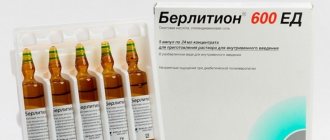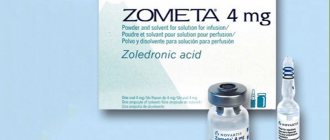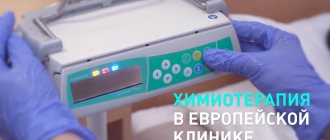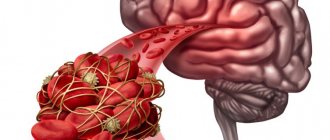Compound
The active component of Berlition is α-lipoic (thioctic) acid, which is also called thioctacid. The oral form of the drug is presented in capsules of 300 and 600 mg and coated tablets containing 300 mg of active substance. The additional composition of the tablet product is represented by lactose monohydrate, colloidal silicon dioxide, microcellulose, povidone, croscarmellose sodium, magnesium stearate. The film coating is formed by hypromellose, titanium dioxide, mineral oil, sodium lauryl sulfate and dyes E110 and E171.
Composition and release form of the drug
Alpha-lipoic acid as an active component is presented in the drug Berlition, produced by the pharmaceutical concern Hemi (Germany).
The drug belongs to the group of hepatoprotectors, drugs for treating and maintaining liver function.
According to the release form, the medicinal product is presented:
- The concentrate for the preparation of a solution for injection contains ampoules of 12 mg, containing 300 mg of alpha-lipoic acid (IU). Packed in 5, 10, 15 ampoules in a cardboard box.
- The concentrate for the preparation of a solution for injection contains ampoules of 24 mg, containing 600 mg of the main active ingredient alpha-lipoic acid (IU). Packed in 5 or 10 ampoules in a cardboard box.
- In soft gelatin capsules for oral use - 300 mg of alpha-lipoic acid. Packed in a contour cell form and a cardboard box.
Photo gallery on the topic:
Berlition in ampoules 24 mg
Berlition tablets
Berlition in ampoules 12 mg
pharmachologic effect
A-lipoic acid is a vitamin-like compound close to B-vitamins. It has a direct and indirect effect on free radicals, exhibiting antioxidant properties, and also activates the work of other antioxidants. This allows you to protect nerve endings from damage, inhibit the process of glycosylation of protein structures in diabetics, and activate microcirculation and endoneurial circulation.
Thioctacid is a coenzyme of multimolecular enzyme complexes of mitochondria and takes part in the decarboxylation reactions of alpha-keto acids. It also reduces the amount of glucose in the blood plasma, increases the concentration of glycogen in the liver structures, increases the body’s sensitivity to the action of insulin, is involved in lipid-carbohydrate metabolism and helps normalize cholesterol levels.
Under its influence, cell membranes are restored, cell conductivity increases, the functioning of the peripheral nervous system improves, and alternative glucose metabolism is enhanced, which is especially important for patients with diabetes. Thioctic acid has a beneficial effect on hepatocytes, protecting them from the destructive effects of free radicals and toxic substances, including ethanol metabolization products.
Due to its pharmacological properties, thioctacid has the following effects on the body:
- hypolipidemic;
- hypoglycemic;
- hepatoprotective;
- neurotrophic;
- detoxification;
- antioxidant.
Pharmacokinetics
After oral administration, the drug is almost completely absorbed into the blood within 0.5-1 hour. A full stomach slows down the absorption process. It is quickly distributed throughout the tissues. The bioavailability of lipoic acid ranges from 30-60% due to the “first pass” phenomenon. Its metabolism is carried out mainly by conjugation and oxidation. Up to 90% of the drug, mainly in the form of metabolites, is excreted in the urine 40-100 minutes after administration.
After taking the drug for 0.5-1 hour, it is almost completely absorbed into the blood.
Analogues substitutes
On the pharmaceutical market, Berlition analogues are presented in a fairly wide range. In addition to tablet analogues, there are injectable analogues of the drug.
Analogues of the drug in tablets
Lipoic acid . Manufacturer: Uralbiopharm, JSC (Russia). One film-coated tablet contains 12 and 25 mg of alpha-lipoic acid. Refers to metabolic and detoxification agents.
Thiolepta . Manufacturer: Canonpharma Production CJSC (Russia). Available in two dosages: 300 and 600 units of the main active ingredient alpha-lipoic acid.
Light yellow tablets in blister packs of 10 or 15 pieces.
Octolipen . Manufacturer: Pharmstandard-UfaVITA (Russia). Available in two dosages: 300 and 600 units of alpha lipoic acid. Prescribed as a hepatoprotective, hypoglycemic and neuroprotective agent.
Photos of drugs:
Octolipen
Thiolepta
Lipoic acid
Espa-Lipon . Manufacturer: Pharmaceutical concern Esparma, Germany. Tablets (200 and 600 units of alpha-lipoic acid) packed in a box of 30 pieces. According to the instructions, the drug is indicated for neuropathies, liver diseases and intoxications.
Thiogamma . Manufacturer: Pharmaceutical concern Verwag Pharma (Germany). one tablet contains 600 units of alpha-lipoic acid.
Thioctacid . Manufacturer: Pharmaceutical concern Meda Pharma, Germany. Tablets, packaged in bottles of 30 pieces, in a dosage of 600 units, with the main active ingredient alpha-lipoic acid.
Photos of analogues:
Espa-Lipon Thioctacid
Thiogamma
The indications and contraindications of all analogue drugs are identical to those of Berlition.
Analogues of Berlition 300
- Lipothioxone;
- Octolipen 300;
- Thiolepta;
- Thiolipon.
Pharmacodynamics, pharmacokinetics with side effects, dosage and route of administration are identical to Berlition 300 units.
Analogs of the drug that are similar not in composition, but in the mechanism of action on the body (one pharmacological subgroup) include:
- Bifiform;
- Orfadin;
- Gastrikumel (homeopathic remedy).
Photos of drugs:
Orfadin
Gastrikumel
Bifiform
Analogues of Berlition 600
- Espa-Lipon 600;
- Octolipen 600;
- Thioctacid 600.
Pharmacodynamics, pharmacokinetics, side effects, dosage and route of administration are identical to Berlition 600 IU.
Photo gallery of analogues:
Octolipen 600 Espa-Lipon 600 Thioctacid 600
Indications for use of Berlition 600 tablets
The drug is most often prescribed for polyneuropathy, manifested in the form of pain, burning, and temporary loss of sensation in the limbs. This pathology can be caused by diabetes, alcohol abuse, bacterial or viral infection (as a complication, including after the flu). The medicine is also used in complex treatment in the presence of:
- hyperlipidemia;
- fatty liver degeneration;
- fibrosis or cirrhosis;
- hepatitis A or chronic form of the disease (in the absence of severe jaundice);
- poisoning with poisonous mushrooms or heavy metals;
- atherosclerosis of coronary vessels.
In some cases, it is possible to use Berlition as a prophylactic agent.
Characteristics of Berlition
Berlition is a drug based on thioctic acid, which belongs to the group of vitamins and is highly soluble in water. Its main action is as follows:
- accelerates metabolic processes;
- helps the production of enzymes;
- regulates fat and carbohydrate balance;
- normalizes the functioning of nerve bundles;
- has a beneficial effect on the course of trophic processes;
- deactivates and removes free radicals;
- Helps absorb vitamins and antioxidants.
Berlition is a drug based on thioctic acid, which belongs to the group of vitamins and is highly soluble in water.
Berlition helps with such a terrible disease as diabetic polyneuropathy in diabetes mellitus. This disease often leads to disability. But at the same time, the patient must regularly take blood tests to monitor blood sugar levels.
Berlition is used in the following cases:
- liver diseases;
- glaucoma;
- angiopathy;
- damage to nerve endings.
The drug helps eliminate the effects of chemical poisoning.
It is used as an additional remedy in the treatment of diabetes and HIV infection.
Berlition has the following indications for use:
- hypotension;
- anemia;
- osteochondrosis of any localization;
- atherosclerotic changes in the coronary vessels;
- endocrine diseases caused by metabolic disorders;
- polyneuropathy of the lower and upper extremities;
- organic disorder in the cells of the spinal cord and brain;
- acute and chronic intoxication of various origins;
- diseases of the liver and biliary tract.
A drug based on alpha-lipoic acid is used in endocrinology and cosmetology to normalize metabolic processes, improve skin condition, and lose weight.
Berlition has contraindications:
- pregnancy and lactation;
- age under 18 years;
- fructose intolerance;
- galactosemia;
- lactose deficiency.
Side effects rarely occur after taking Berlition. It can be:
- changed taste sensations;
- tremor of limbs, convulsions;
- a feeling of heaviness and pain in the head, dizziness, visual impairment, manifested by doubling of objects and flickering of spots;
- abdominal pain, constipation, diarrhea, nausea, vomiting;
- tachycardia, feeling of suffocation, skin hyperemia;
- urticaria, skin itching, rashes.
The manufacturer of Berlition is the pharmaceutical concern Hemi (Germany). In terms of release form, the drug is presented in tablets and solution for injection in ampoules for intravenous administration. Analogs of this drug include: Neurolipon, Thiolipon, Lipothioxone, Thiogamma, Octolipen.
How to take Berlition 600 tablets
Oral administration of the drug is carried out on an empty stomach. The tablets should be swallowed without chewing and washed down with the required amount of water. You should not eat food immediately after this; you must wait at least 30 minutes. The optimal dosage is prescribed by the attending physician.
The drug is not prescribed during pregnancy.
For adults
The daily dose of the drug may vary depending on the severity of the disease. It is taken orally in full at one time, preferably before breakfast, sometimes a 2-time dose is allowed. Most often, a long course of treatment is required.
For severe lesions, it is recommended to begin therapy with parenteral administration of Berlition in the form of infusions.
The solution must be administered dropwise. After 2-4 weeks, treatment is continued with tablets or capsules.
For children
Oral forms of the drug are not prescribed to children and adolescents. Although there are isolated cases of their effective use for the treatment of thyroid pathologies after differentiation from rickets, Down syndrome and other abnormalities.
Oral forms of the drug are not prescribed to children and adolescents.
For diabetes
When treating diabetic polyneuropathy, it is important to maintain blood sugar concentrations at the proper level. It may be necessary to adjust the doses of hypoglycemic agents taken by the patient.
Terms of sale and storage
The drug is dispensed from pharmacies only with a prescription from a specialist. In some places it is available over the counter, but it can only be used on the recommendation and under the supervision of a physician.
The medicine in tablets is stored for 2 years, and the solution must be used within 3 years. The starting point should be the date of manufacture indicated on the packaging.
Ampoules must be kept in a dry, dark place at a temperature not exceeding 25°C. You can place them on the wall of the refrigerator. It is necessary to ensure that children and pets do not have access to the drug.
After the expiration of the shelf life or if the integrity of the ampoules is damaged, they are prohibited from being used.
Before using Berlition at home, you need to get full approval from a specialist.
Analogs (briefly)
If there are medical exemptions for the use of a medicine, it should be replaced with pharmacological agents with a similar mechanism of action.
Most often, the doctor prescribes:
- Actovegin.
- Gastrikumel.
- Dalargin.
- Lipin.
- Lipothioxone.
- Neurolipon.
- Octolipen.
- Orfadin.
- Plazmol.
- Thiogamma.
- Thioctacid 600 T.
- Thiolipon.
- Erbisol.
Any drug is prescribed only by a specialist and is used under his strict supervision.
Side effects of Berlition 600 tablets
When taking the drug orally, various undesirable reactions may occur:
- Nausea, vomiting.
- Taste anomalies.
- Digestive disorders.
- Abdominal pain.
- Hyperhidrosis.
- Purpura.
- Hypoglycemia.
Blood-forming organs
Thrombocytopenia is possible, although this is more common when the drug is administered intravenously.
central nervous system
Headaches, a feeling of heaviness in the head, convulsions, dizziness, and impaired visual function (double vision) may appear.
Allergies
Allergic signs manifest themselves in the form of body rashes, itching, and erythema. Cases of anaphylaxis have been reported.
Impact on the ability to operate machinery
No specific data available. Given the possibility of dizziness, convulsions and signs of hypoglycemia, caution should be exercised when driving a car or when working with potentially dangerous mechanisms.
Allergic signs manifest themselves in the form of body rashes and itching.
Dosage and overdose
The course of treatment lasts about two months
The dosage and method of administration of Berlition are selected by the doctor individually.
Usually, for the treatment of polyneuropathies, Berlition is prescribed orally in a dosage of 600 units once before the morning meal.
For severe forms of diseases, a combination of the drug Berlition: injection with capsules is indicated as an auxiliary therapy.
Berlition solution is administered intravenously (300 or 600 units) in the morning for one to two weeks.
The injection form of the drug is a concentrated substance, which is diluted with physiological solution in an amount of 250 ml (bottle) before administration.
Berlition solution is administered intravenously slowly (30-45 minutes). During the intravenous drip procedure, the bottle with the dissolved drug is closed with light-proof dark paper or foil.
After a course of IV drips, the doctor prescribes further administration of the drug with alpha-lipoic acid (orally, capsules).
Berlition 300 IU injections can be prescribed intramuscularly for 2-4 weeks. In this case, the drug concentrate is diluted in 2 ml of physiological solution.
A course of therapy with Berlition usually lasts 2 months. According to indications, a second course of treatment with a drug based on alpha-lipoic acid is prescribed after six months.
An overdose of a drug with alpha-lipoic acid can be expressed by irritation of the mucous membranes of the stomach and intestines. Symptoms of overdose: abdominal pain with vomiting and diarrhea.
special instructions
Constant monitoring of the glycemic index in diabetics is required. During treatment and in breaks between therapeutic courses, you should completely abstain from alcohol and not ingest alcohol-containing medicinal formulations.
Use during pregnancy and lactation
It is not recommended to take the drug during pregnancy. During treatment, mothers should stop breastfeeding, since there is no data on whether thioctacid passes into breast milk and what effect it has on the child’s body.
Contraindications
The drug Berlition has its own contraindications.
With caution, under glycemic control, a drug based on lipoic acid is prescribed to patients suffering from any form of diabetes.
Berlition is not prescribed for treatment in pediatric practice, or for women during pregnancy or lactation.
Medicines based on alpha-lipoic acid are prohibited and should not be used by people suffering from fructose intolerance, lactose intolerance, or galactosemia.
Overdose
If the permissible doses are exceeded, headache, nausea, and vomiting develop. Convulsive manifestations, lactic acidosis, and coagulation disorders are possible.
Diabetic patients may fall into a hypoglycemic coma.
If alarming symptoms are detected, you should provoke an attack of vomiting, take the sorbent and seek medical help. Treatment is symptomatic.
In case of overdose, seek medical attention.
Overdose of the drug Berlition
Overdose may cause nausea, vomiting and headache. When α-lipoic acid was used in very high doses (10–40 g), in combination with alcohol, severe intoxication, in some cases fatal, was observed. The clinical picture of intoxication at the beginning is manifested by psychomotor agitation or eclipse of consciousness, and later acquires a course with attacks of generalized convulsions and the development of lactic acidosis. Due to such intoxication, hypoglycemia, shock, rhabdomyolysis, hemolysis, disseminated intravascular coagulation, bone marrow suppression, and multiorgan failure may occur. Treatment of intoxication is carried out according to general principles: induce vomiting, wash the stomach, use sorbents. If necessary, carry out symptomatic therapy. Currently, there is no data on the advisability of hemodialysis, hemoperfusion or hemofiltration methods as part of the forced elimination of α-lipoic acid.
Interaction with other drugs
The effect of Berlition is weakened in the presence of ethanol and its breakdown products.
Due to the ability of lipoic acid to create complex compounds, this medicine is not taken together with such components as:
- magnesium or iron preparations;
- Ringer's solution;
- solutions of fructose, glucose, dextrose;
- milk products.
The interval between their administration should be at least several hours.
Berlition enhances the effect of insulin, hypoglycemic drugs taken orally, and carnitine. Co-administration of the drug in question with Cisplatin weakens the effectiveness of the latter.
The interval between their administration should be at least several hours.
Drug interactions
Berlition 600 is capable of forming chelate complexes with iron, magnesium, calcium and other metals, so their simultaneous administration should be avoided.
Thioctic acid enhances the hypoglycemic effect of insulin and oral hypoglycemic drugs, and also reduces the therapeutic effect of cisplatin.
Ethanol significantly reduces the effect of Berlition 600.
To prepare a solution for infusion, do not use solutions of fructose, dextrose, glucose, Ringer, as well as solutions that interact with disulfide bridges and SH groups.
Reviews
The drug receives a lot of positive feedback from doctors and patients.
Doctors
Mikoyan R. G., 39 years old, Tver
Many of my colleagues are skeptical about Berlition. But it works well both in the prevention of damage to the peripheral nervous system and in the treatment of neuropathies in diabetic patients.
This medicine is not taken together with t Glucose.
Tips for using the drug
To exclude negative consequences from treatment with Berlition, you should strictly follow the instructions, do not prescribe the drug yourself, and do not exceed the recommended doses.
Berlition during pregnancy
A drug based on alpha-lipoic acid is prohibited for the treatment of women during pregnancy and lactation.
Alcohol compatibility
Berlition is not compatible with alcohol and alcohol-containing drugs. Alcohols and their metabolites neutralize the effect and therapeutic activity of alpha-lipoic acid.
Characteristics of Octolipen
Octolipen is a drug based on thioctic acid. When ingested, it has the following effects:
- activates fat and carbohydrate metabolism, reducing blood sugar;
- carries out decarboxylation;
- removes toxic compounds from the body;
- normalizes innervation;
- promotes brain activity;
- restores the structure of the liver during fatty degeneration and hepatitis;
- eliminates wrinkles, increases the elasticity of the skin;
- allows medications to be absorbed faster.
For diseases that develop due to metabolic disorders and damage to nerve fibers, doctors prescribe Octolipen. Indications for its use are as follows:
- cholecystitis;
- pancreatitis;
- atherosclerosis;
- chronic hepatitis;
- fatty fibrosis;
- insulin resistance in type 1 diabetes;
- polyneuropathy of alcoholic and diabetic origin.
Contraindications include:
- pregnancy and lactation;
- children under 18 years of age;
- intolerance to the components of the drug;
- galactosemia;
- lactose deficiency.
If you do not follow the dosage and take the medicine incorrectly, negative consequences may develop. A skin reaction may develop - hyperemia of the mucous membranes, urticaria, allergic dermatitis.
If flatulence, vomiting, or nausea occurs, you should stop taking the drug.
The doctor will help you choose a safe analogue. This could be Espa-lipon, Thiolipon, Thioctacid. The manufacturer of Octolipen is Pharmstandard-Leksredstva OJSC (Russia). The drug is available in three forms: capsules, tablets, ampoules with injection solution.
Patient reviews
Alena, 26 years old, Samara: “I decided to buy the drug Octolipen for weight loss, because I found out that it normalizes fat metabolism and controls appetite. I took it according to the instructions. After a while I noticed a significant result.”
Oksana, 44 years old, Omsk: “I suffer from diabetic encephalopathy. The doctor prescribed the drug Octolipen to relieve the symptoms of the disease and stop further changes in the nerve fibers. I took the product for 2 weeks. During this period I felt an improvement.”
Dmitry, 56 years old, Dimitrovgrad: “The doctor prescribed Berlition in the form of droppers to treat complications caused by diabetes. At the very beginning of treatment, a headache occurred and a burning sensation was felt in the legs. After a short break, the doctor prescribed this drug in tablet form. No such side effects were observed after their use.”
Octolipen is a cheap analogue of Berlition, so it is prescribed more often.
Comparison of Berlition and Octolipen
Although the action of both drugs is based on thioctic acid and they have much in common, they also have differences.
Similarities
The main active ingredient of Berlition and Octolipen is thioctic acid. Both drugs have the same number of contraindications and side effects.
What is the difference
The difference between Berlition and Octolipen is that the first drug is produced in Germany, and the second in Russia. In addition, Berlition is available in two forms: ampoules and tablets, and Octolipen in three: capsules, ampoules and tablets.
Which is cheaper?
The drugs also differ in cost. The price of Berlition is 900 rubles, Octolipen is 600 rubles.






